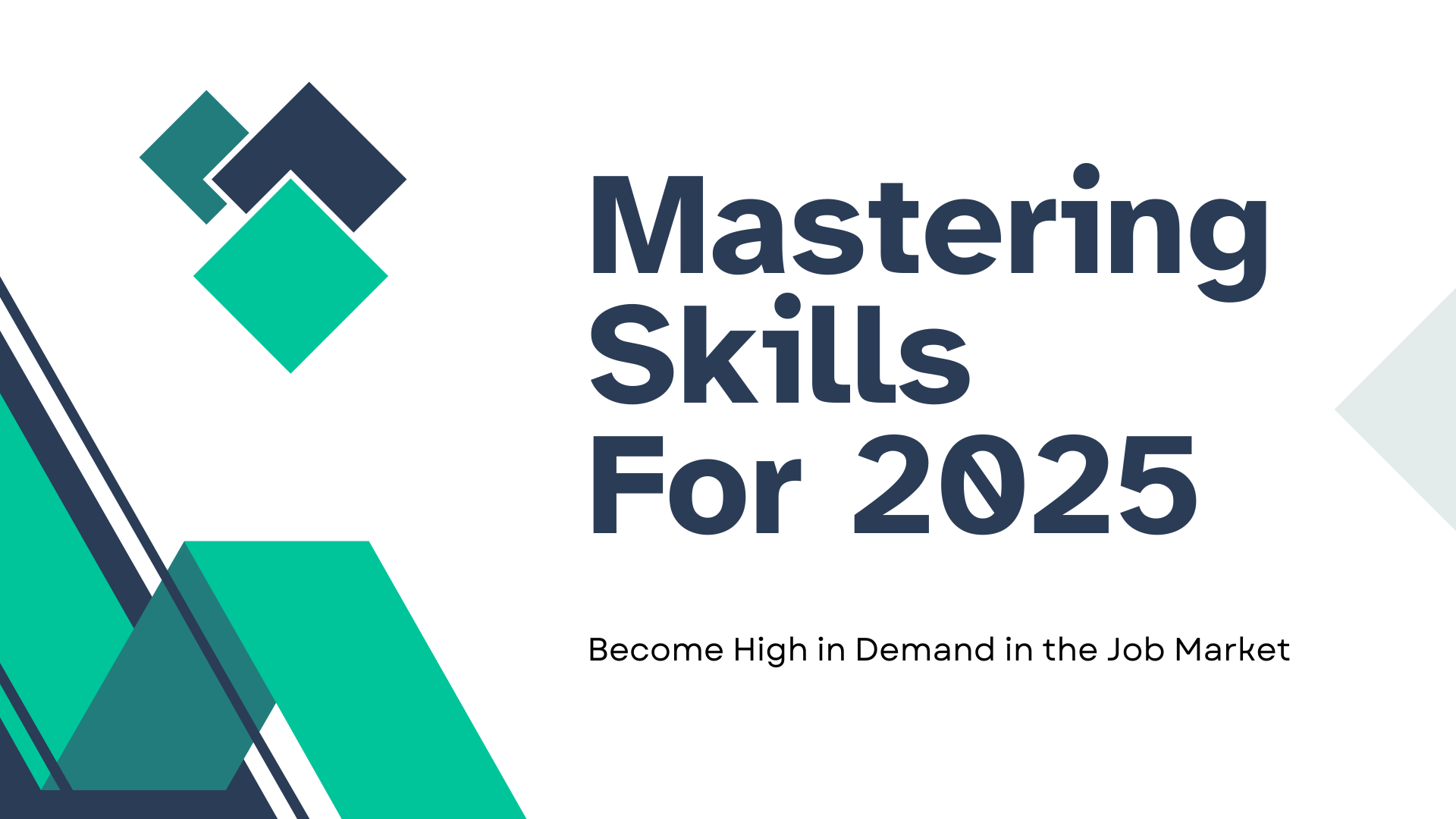“The future belongs to those who prepare for it today.” – Malcolm X
In 2025, the job market is expected to emphasize a mix of technical, soft, and adaptive skills due to the ongoing digital transformation, automation, and evolving workplace dynamics.
Here are the most in-demand skills anticipated for 2025:
1. Tech and Digital Skills
- Data Analysis and Data Science: Companies will continue to prioritize professionals who can analyze and interpret data to make strategic decisions.
- Artificial Intelligence (AI) and Machine Learning (ML): Expertise in AI/ML will be essential as industries increasingly adopt automation and predictive analytics.
- Cloud Computing: As businesses shift to the cloud, skills in platforms like AWS, Azure, and Google Cloud will remain in high demand.
- Cybersecurity: With rising cyber threats, professionals with skills in ethical hacking, network security, and data protection will be indispensable.
- Software Development: Full-stack developers, app developers, and those proficient in emerging programming languages like Rust or Kotlin will be sought after.
- Blockchain: Beyond cryptocurrency, blockchain skills will be needed for applications in finance, supply chain, and healthcare.
2. Business and Strategy Skills
- Digital Marketing: As online spaces grow, expertise in SEO, content marketing, and social media strategies will be crucial.
- Business Analytics: Analyzing trends and making data-driven decisions will be vital for business growth.
- Product Management: Professionals who can oversee the lifecycle of tech products and align them with customer needs will thrive.
- Financial Acumen: Skills in financial planning, investment analysis, and risk management will remain relevant.
3. Creativity and Innovation
- Design Thinking: Problem-solving approaches that prioritize user needs will be valuable for product and service development.
- Creative Writing and Content Creation: Original content for various platforms, from blogs to videos, will remain in demand.
- UX/UI Design: Creating user-friendly digital experiences will be key for retaining and engaging customers.
4. Interpersonal and Leadership Skills
- Emotional Intelligence (EQ): Understanding and managing emotions, as well as fostering positive workplace relationships, will be critical.
- Collaboration and Teamwork: Working effectively in diverse, often remote, teams will be essential.
- People Management: Leading teams, managing conflict, and inspiring others will continue to be a priority.
- Adaptability: Being flexible and open to change in dynamic environments will be a top skill.
5. Advanced Problem-Solving
- Critical Thinking: Evaluating information and making reasoned decisions will be crucial in addressing complex challenges.
- Complex Problem-Solving: Tackling multi-layered issues with innovative solutions will set professionals apart.
- Decision-Making: Balancing data-driven insights with intuition will be a key skill for leadership roles.
6. Sustainability and Green Skills
- Environmental Science: As companies focus on sustainability, roles related to environmental impact analysis will grow.
- Renewable Energy Expertise: Engineers and analysts in wind, solar, and other renewable energy sectors will be in demand.
- Circular Economy Knowledge: Skills related to waste reduction, recycling, and resource optimization will become more relevant.
7. Communication Skills
- Storytelling and Presentation: The ability to convey ideas effectively will be critical across all roles.
- Cross-Cultural Communication: Globalized work environments will require sensitivity to diverse perspectives.
8. Lifelong Learning and Tech Agility
- Learning How to Learn: Staying current with rapid technological and industry changes will require a commitment to continuous learning.
- Tech Savviness: Comfort with evolving tools and platforms, even outside one’s core expertise, will be expected.
Preparing for the Future:
- Stay updated on industry trends through certifications, courses, and professional networks.
- Build hybrid skillsets that combine technical expertise with soft skills like creativity and leadership.
- Prioritize adaptability and a growth mindset to navigate new challenges.
These skills will equip professionals to thrive in a competitive and evolving job market in 2025 and beyond.




